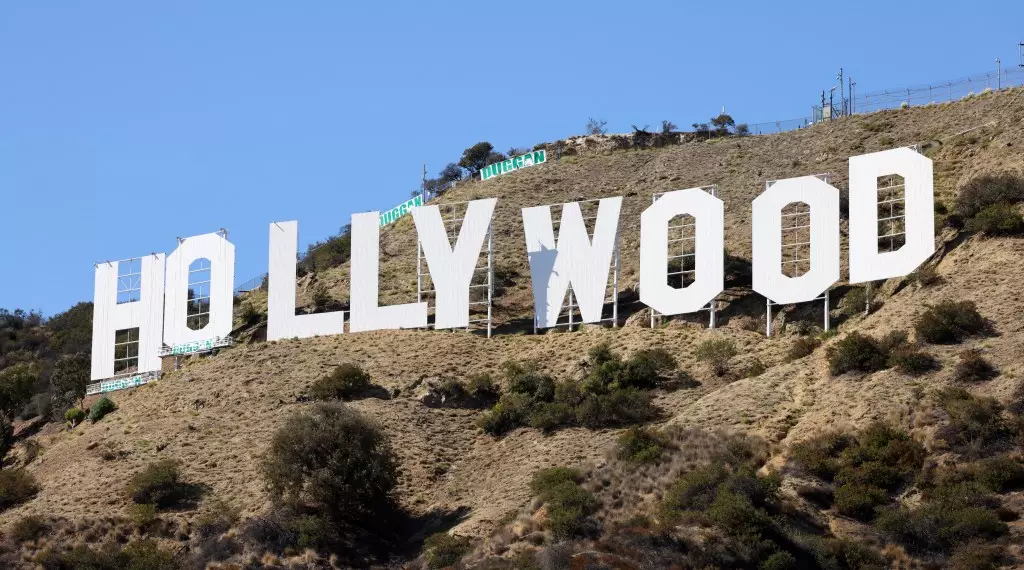The future of Hollywood hangs in the balance as the industry grapples with the need for change. In the wake of the strike and the COVID-19 pandemic, major studios like Disney, Paramount, and Sony have been forced to make significant cutbacks and delay high-profile movies. The pressure to “fix” and “re-imagine” is reminiscent of a pivotal moment in Hollywood’s history when three powerful players sought to revolutionize the industry. However, their grand ambitions ultimately fell short. As Hollywood faces yet another pivotal moment, the question remains: can the industry find a new golden age or, at the very least, a period of renewed profitability?
In the late ’70s, Steven Spielberg, David Geffen, and Jeffrey Katzenberg formed a dream team determined to transform Hollywood. They envisioned a new studio with uniquely designed stages and a reimagined decision-making process. They set out to break new paths in terms of compensation formulas and content creation. Their audacious plans garnered attention, but the details were scarce. Nevertheless, their determination to keep their secrets concealed was admirable.
Spielberg, in particular, had grand ideas about how to fix Hollywood’s shortcomings. He criticized the inept design of stages but, ironically, never followed through on building his own studio or finding an ideal location. Ultimately, DreamWorks, the studio formed by the three founders, made waves in the industry with movies like “American Beauty” and “Shrek” but failed to sustain a continuous wave of innovation. Today, only Spielberg remains active in the filmmaking world, while Geffen focuses on art and Katzenberg on politics.
With the current demand for fixes in Hollywood, is there a chance that the industry can stumble upon a new golden age? Author Peter Biskind, known for chronicling the prosperous era of the 1970s in his book “Easy Riders, Raging Bulls,” has now turned his attention to the streaming malaise. His latest book, titled “Pandora’s Box: How Guts, Guile, and Greed Upended TV,” explores the downfall of HBO and the challenges of modern television. Biskind quotes Michael Fuchs, the former HBO president, who boldly stated that “HBO died at fifty” and suggests that the network has lost its essence.
The book also features John Landgraf of FX, who argues that throwing money at a project does not guarantee great art. This sentiment is echoed by Michael Schulman of The New Yorker, who observes that the once poetic comparison of TV to 19th-century novels no longer holds true. The sense of communing with literary giants like Dickens or Zola through television seems to have faded.
The consensus within Hollywood is clear: change is necessary. The post-strike era requires more than just cutbacks and delays. Industry-leading brands like Netflix are already pledging a shift in their content strategy with a “half as many but twice as good” approach. The pressure to deliver compelling content in a rapidly evolving landscape is palpable. The opening numbers for “The Marvels” and the struggles of the HBO label indicate the need for strong fixes.
However, the path forward remains uncertain. It is crucial for Hollywood to examine its past failures and learn from them. The ambitious dreams of Spielberg, Geffen, and Katzenberg serve as a cautionary tale of the challenges in executing grand visions. Innovation cannot simply be a buzzword; it requires careful planning and execution.
As Hollywood faces the need for change and reinvention, the industry stands at a crossroads. The search for a new golden age or a period of renewed profitability is ongoing. The challenges brought on by streaming services and evolving audience preferences demand that Hollywood adapt and find new ways to captivate viewers.
It remains to be seen whether the industry can rise to the occasion and create a future that lives up to the grand dreams of the past. Only time will tell whether Hollywood can find its footing and once again lead the way in entertainment. The future of Hollywood is unwritten, and it is up to the industry to shape its own destiny.


Leave a Reply